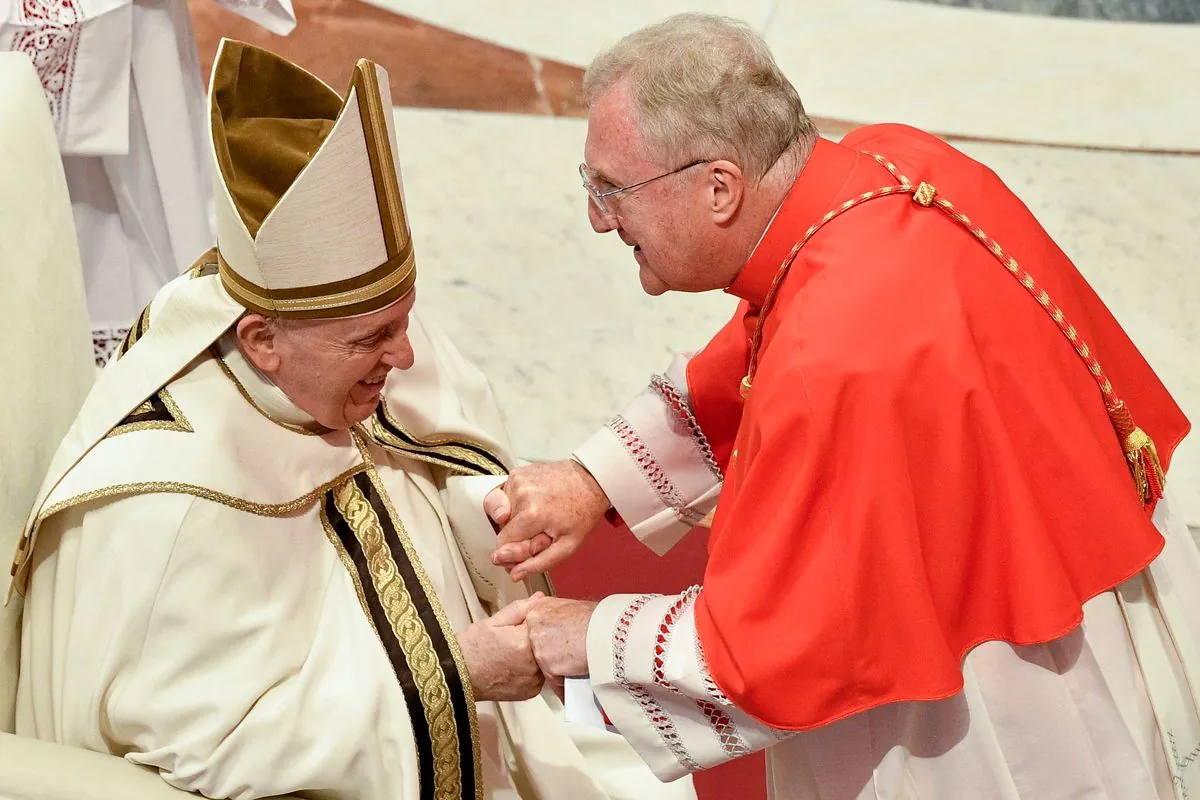Pope Francis has appointed 21 new cardinals, significantly expanding the College of Cardinals and further solidifying his influence on the group that will eventually elect his successor. This decision marks a notable increase in the size of this influential body within the Catholic Church.
The College of Cardinals, established in 1150, has played a crucial role in the Church's governance for centuries. Initially allowed to elect the Pope in 1059, the cardinals' responsibilities have evolved over time. The current expansion brings the number of voting-age cardinals to 142, exceeding the usual limit of 120 set by Pope Paul VI in 1975.
Among the new appointees are two notable individuals: Monsignor Angelo Acerbi, who at 99 years old will become the oldest cardinal, and Bishop Mykola Bychok, the 44-year-old head of the Ukrainian Greek Catholic Church in Melbourne, Australia, who will be the youngest. This wide age range reflects the Pope's intention to bring diverse perspectives into the College.
The official appointment ceremony, known as a consistory, is scheduled for December 8, 2024, coinciding with an important feast day that marks the beginning of the Christmas season in Rome. This will be Pope Francis' tenth consistory and the largest influx of voting-age cardinals during his 11-year pontificate.
The appointments demonstrate Pope Francis' commitment to increasing global representation within the Church leadership. The new cardinals come from various regions, including South America, North America, Asia, Africa, and Europe. This diversity aligns with the historical progression of the College of Cardinals, which saw its first non-European member in 1439 and has since expanded to include representatives from all continents.
Notably, the Pope has appointed cardinals from areas where the Church is experiencing growth, such as Asia and Africa. The selection of Bishop Bychok from Ukraine also sends a subtle political message in the context of ongoing conflicts in the region.
"Francis has again continued to extend the reach of the college of cardinals. Like his predecessors, but even more so, he's making sure that Catholic leaders from the church's edges have a voice at the big table."
This expansion of the College of Cardinals continues a trend set by Pope Francis throughout his papacy. Prior to these new appointments, he had already named the majority of voting-age cardinals, with 92 out of the previous 122 being his appointees.
The significance of these appointments extends beyond mere numbers. Cardinals, often referred to as "princes of the Church" since the 16th century, play a crucial role in Church governance and symbolism. Their red robes, a tradition dating back to 1245, symbolize their willingness to shed blood for the Church.
As the Catholic Church continues to evolve and address global challenges, these new appointments reflect Pope Francis' vision for a more inclusive and representative leadership structure. The diverse backgrounds and experiences of these new cardinals are expected to bring fresh perspectives to the College, potentially shaping the future direction of the Church.
